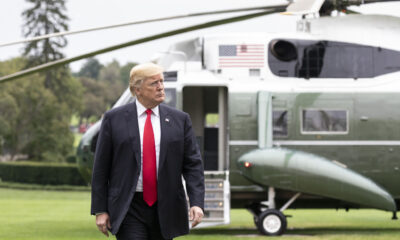Civilization
The Real Climate Crisis Is About Power, Not Just Energy
The real climate crisis is a power play by the largest and wealthiest nations, which makes the Papul New Guinea walkout more significant.

A small nation’s defiant exit from COP29 has exposed what many in the developing world have long understood: the global climate agenda is increasingly becoming a story of power asymmetry rather than environmental cooperation. When Papua New Guinea walked away from the conference, it wasn’t merely protesting unfulfilled promises – it was challenging the very framework of how we approach global climate action. And in a global state of weak climate leadership, others, with a different vision of climate “cooperation,” will eagerly step in.
The climate narrative is due for a shakeup
The mathematics of this moment are stark. Wealthy nations, which have contributed roughly 80% of historical carbon emissions, continue to dominate the climate narrative while failing to deliver on their fundamental commitments. This isn’t just about missed financial targets; it’s about a deepening crisis in the global fight against climate change, compounded by a lack of energy access.
Let’s be clear about what’s really happening. The developing world faces an impossible trinity: they must simultaneously provide basic energy access to their populations, build climate resilience, and somehow leapfrog past fossil fuels – all while lacking the financial and technological resources to achieve any one of these goals effectively. While the West keeps talking, alternative powers are stepping into action. Iran, despite sanctions, has been strengthening energy ties with neighboring nations through natural gas partnerships, as evidenced by the Iran-Pakistan gas pipeline project. Meanwhile, Russia leads in nuclear technology exports to developing nations, with significant projects in Bangladesh, Egypt, and Turkey, and China is rapidly expanding its influence through the Belt and Road Initiative’s energy infrastructure projects across Africa and Asia.
This approach isn’t just morally questionable – it’s strategically self-defeating. By failing to support distributed energy solutions in developing nations, we’re effectively forcing them toward the cheapest available options: coal, deforestation, and other environmentally devastating choices. More worryingly, we’re pushing them into the sphere of influence of Russia and China, who are more than happy to provide coal plants and oil infrastructure with no environmental strings attached.
Pay attention to emerging technologies
There are emerging technologies that could fundamentally reshape energy access for developing countries. While many remain in development, the long-term vision that COP supposedly champions should focus on next-generation solutions like advanced nuclear, such as nuclear fission SMRs and fusion technology, clean hydrogen, and other breakthrough technologies. As expensive as they will be in their first years, these solutions could help break the cycles of energy dependency and geopolitical pressure that currently plague developing nations. Such technologies, alongside renewables and smart grids, represent the kind of comprehensive energy solution that developing nations need – but only if wealthy nations move beyond rhetoric to real investment and technology sharing. The irony is that this investment would actually serve the West’s own strategic interests, creating new markets and reducing the leverage of competing powers while addressing climate challenges.
A fundamental change in climate action approach
This moment demands a fundamental rethinking of how we approach global climate action. The solution isn’t just about increasing aid pledges – it’s about restructuring the entire framework to create a true global climate cooperation.
First, wealthy nations must move beyond promises to establish concrete, enforceable mechanisms for technology transfer and financial support. This isn’t charity – it’s a strategic investment in global stability. The cost of inaction, both in climate and geopolitical terms, far exceeds the price of meaningful support.
Second, we need to prioritize distributed energy solutions that match local needs and capabilities before the inevitable transition away from fossil fuels. Without such preparation, developing countries will have no choice but to either remain dependent on coal and oil or turn to other global powers for help. This means supporting a diverse energy portfolio tailored to each nation’s specific circumstances.
Third, we must reform the way wealthy countries deal with global climate initiatives, and give developing nations a more meaningful voice in shaping solutions. The current system, where developed countries effectively dictate terms to the developing world, is pushing these countries straight into a future of continued carbon emissions.
When smaller nations challenge the Big Boys
The Papua New Guinea walkout signals a broader shift in global power dynamics. We’re witnessing the emergence of a new kind of multipolarity – one where smaller nations, especially small island nations, are increasingly willing to challenge the established order through collective action on existential issues like climate change.
The choice before us is clear: either we transform our approach to global climate action, or we watch as more nations follow Papua New Guinea’s lead, potentially continuing to increase fossil fuels use, and allowing power plays disguised as climate action to dominate and derail global efforts.
This article was originally published by RealClearEnergy and made available via RealClearWire.
Oded Gour-Lavie is CEO and Co-Founder of nT-Tao.
-

 Civilization2 days ago
Civilization2 days agoWhy Europe Shouldn’t Be Upset at Trump’s Venezuelan Actions
-

 Accountability5 days ago
Accountability5 days agoWaste of the Day: Principal Bought Lobster with School Funds
-

 Executive3 days ago
Executive3 days agoHow Relaxed COVID-Era Rules Fueled Minnesota’s Biggest Scam
-

 Constitution4 days ago
Constitution4 days agoTrump, Canada, and the Constitutional Problem Beneath the Bridge
-

 Christianity Today2 days ago
Christianity Today2 days agoSurprising Revival: Gen Z Men & Highly Educated Lead Return to Religion
-

 Civilization3 days ago
Civilization3 days agoThe End of Purple States and Competitive Districts
-

 Executive3 days ago
Executive3 days agoWaste of the Day: Can You Hear Me Now?
-

 Executive4 days ago
Executive4 days agoWaste of the Day: States Spent Welfare in “Crazy Ways”














